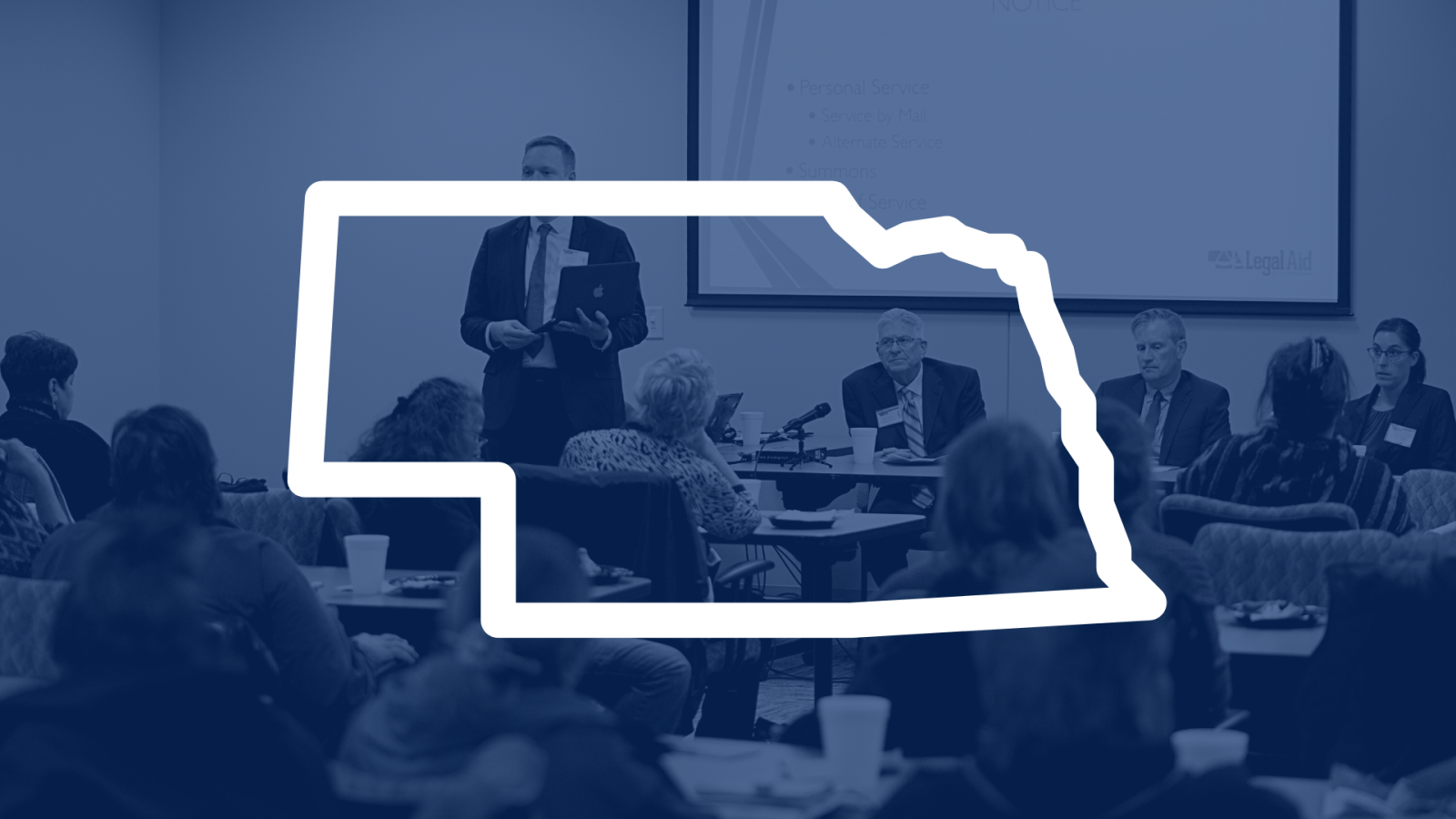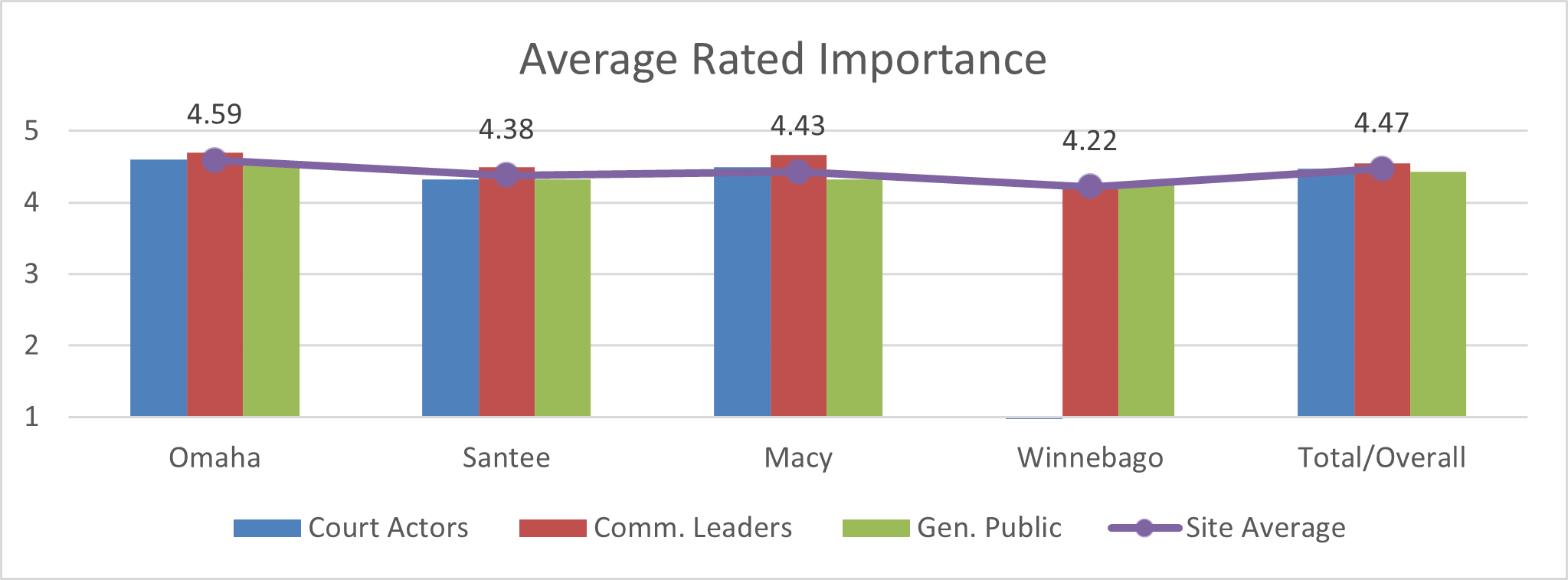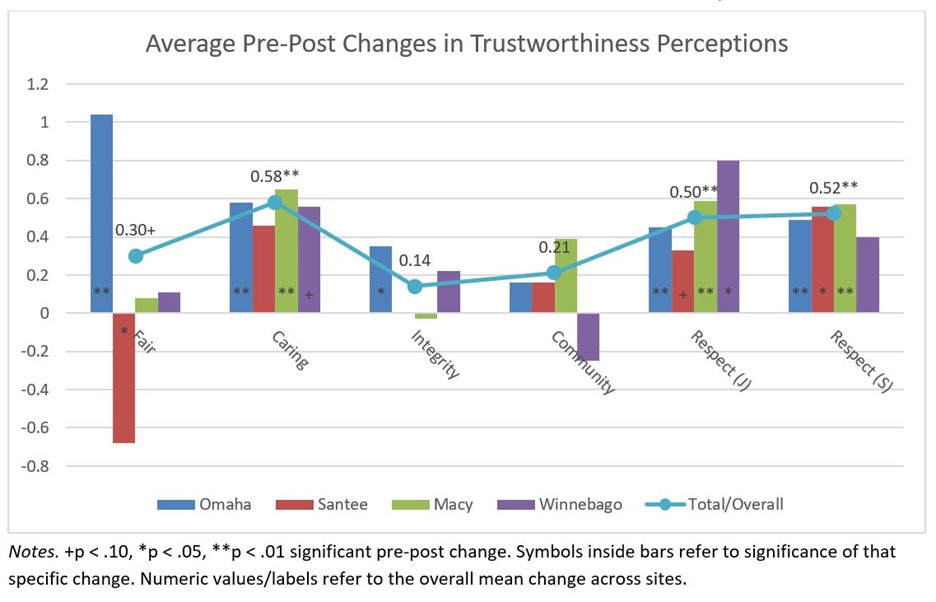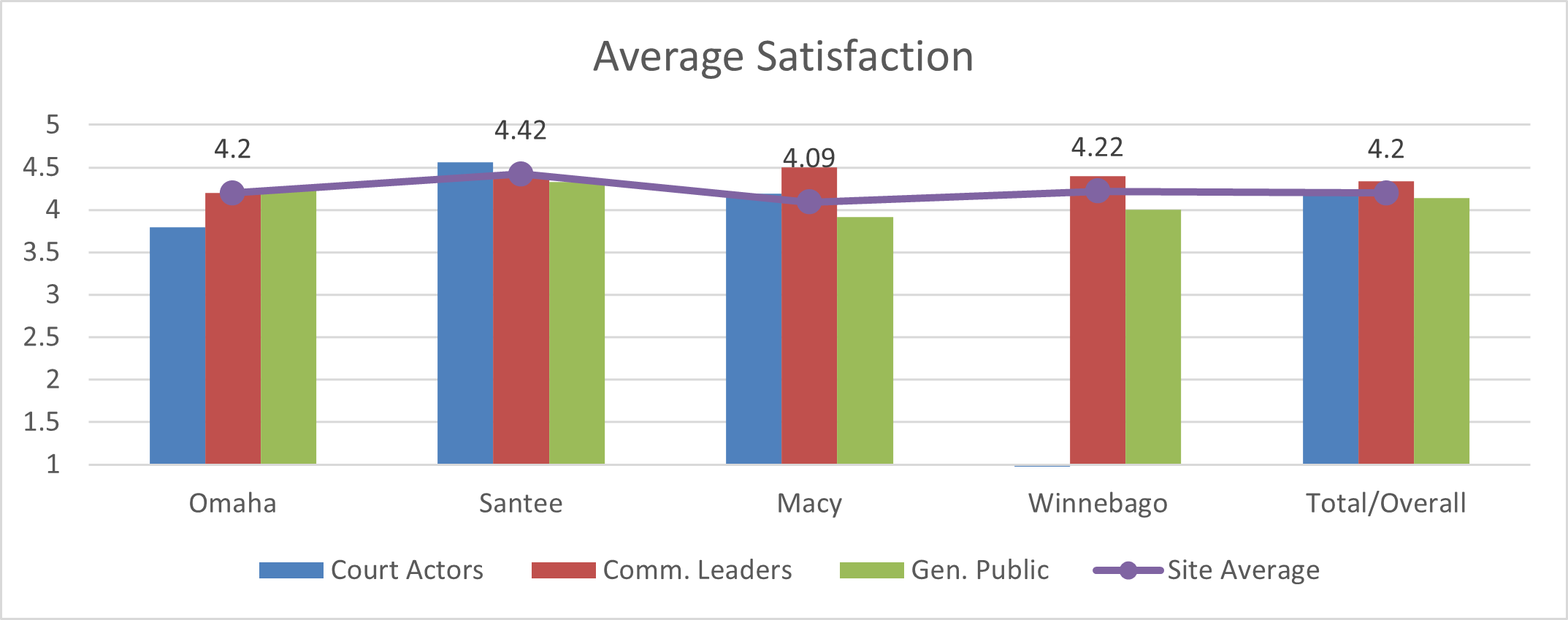
Nebraska's Approach to Community Engagement
Nebraska’s community engagement activities were coordinated by the Nebraska Supreme Court's Access to Justice Commission, Nebraska Bar Association, Nebraska Court Improvement Project, and the Nebraska Administrative Office of the Courts and Probation. This leadership team worked closely with the Nebraska Consortium of Tribal, State, and Federal Courts – a standing committee of the Access to Justice Commission composed of judges from tribal, state and federal courts and representatives of associated legal and community organizations. The Consortium is focused on addressing sovereignty issues facing these courts, and disparities and access issues experienced by Native American court users.
Goals
- Identify ways to reduce documented disparities and address other jurisdictional issues identified in the public hearing process.
- Improve judicial awareness and/or judicial branch training specific to serving Native American populations and understanding the tribal court system.
- Improve Native American’s level of trust and confidence in the courts.
- Build trust across Tribal, State, and Federal court systems.
Recruitment
Nebraska used a combination of purposive and convenience sampling to recruit community members to four engagement sessions across the state. The Nebraska pilot project was primarily aimed at broadly engaging Native Americans about their concerns and experiences with court systems.
Engagement Overview and Activities
Nebraska pilot project partners used a combination of educational presentations, active listening, and discussion sessions for all four engagement sessions. Pilot project team members used a common planning agenda to develop the format for all engagement sessions. All sessions were two-and-a-half to three-and-a-half hours long, and convened in locations familiar to community members.
The primary goals of the engagement sessions were to listen to the concerns and experiences of Native Americans with the judicial system, and address questions or thoughts that arose. Particular emphasis was placed on perceptions and feelings of unfairness experienced by Native Americans and families engaged with courts at all levels. The engagements included the following components:
Key Issues Raised During Discussions
Some of the key issues discussed during the Nebraska engagements included:
- Issues related to the Indian Child Welfare Act (ICWA)
- Child support and custody problems
- Racial justice
- Greater cultural understanding by the courts
- Use of restorative justice
- Intersection of mental health and the court system
- On- versus off-reservation issues
- Disappearance/murder of Indigenous women
- Sovereignty and self-determination
- Tribal court resources
- Other specific issues: e.g., criminal justice, substance abuse, and housing issues
Evaluation
Pre and post engagement surveys were administered at all community engagement sessions. Survey content included items about familiarity and knowledge of the courts, trustworthiness of the courts, and perceptions of how the courts impact communities. Across all four engagement sessions, 138 individuals completed surveys.
Notable results included:
Among respondents from all engagement sessions, perceptions of how the important engagement topics were averaged 4.5 on a scale of 1-5, in which 1 = not at all, 2 = slightly, 3 = somewhat, 4 = very, and 5 = extremely, important.
Thus, on average, participants felt the topics covered by the engagement were between very and extremely important.

On average across all engagement sessions, perceptions of trustworthiness of the state courts increased. Especially consistent were positive changes in perceptions of the extent to which courts care about problems faced by the engagement attendees, and perceptions of how respectful and courteous court judges (J) and staff (S) were to the public.

Averaged across all respondents, satisfaction with the engagement sessions averaged 4.2, on a scale of 1-5, for which 1 = very dissatisfied, 2 = dissatisfied, 3 = neither satisfied nor dissatisfied, 4 = satisfied, 5 = very satisfied.
Thus, on average, participants felt between satisfied and very satisfied with the engagement sessions.

Sustainability
All the Nebraska pilot project engagements were audio recorded, and reporters present at meetings took thorough notes. Because of the direct involvement of numerous judges in the pilot project engagements, important themes and areas for further work were identified.
Nebraska follow-up activities included:
Monthly meetings are held with the Nebraska Consortium of Tribal, State, and Federal Courts to address core issues raised by community engagement participants.
The Consortium determined that addressing issues related to the Indian Child Welfare Act are a priority for future action. The pilot project engagements thus served to generate a plan of action for the Consortium’s future work.
Nebraska is planning additional community engagement sessions to reach Native American communities in other parts of Nebraska.
In an open-ended survey question, engagement participants suggested other community representatives that should be present at future meetings. The resulting list of suggestions helped the Nebraska team identify diverse and broad representation from Native American communities for future engagement activities.
Lessons Learned
- Use a trusted, respected, credible facilitator: The lead facilitator of the engagement sessions was a retired judge who understood the court system and who was also Native American. This was critical to having those in attendance trust that what they were sharing would be and was being heard.
- Plan the role of Judges: Judges played a key role in the engagement sessions by being present and listening to community members’ perceptions and experiences. Planning and consideration are needed to ensure judges contribute to discussions in meaningful ways. Proper planning ensures judges are not put on the spot to answer specific legal questions or address legal situations outside a courtroom context.
- Utilize networks for participation: Promotion and recruitment of participants was greatly facilitated by the existence of pre-existing networks and relationships that the Nebraska team had already developed through its direct connections to Native American community leaders and the Nebraska Consortium of Tribal, State, and Federal Courts.
- Consider using incentives: Participants appreciate incentives. Providing a full meal and $50 gift card to all participants were important to promote the engagement events with community members. This was particularly important as the sessions were over two-and-a-half hours long and held during typical meal times.





